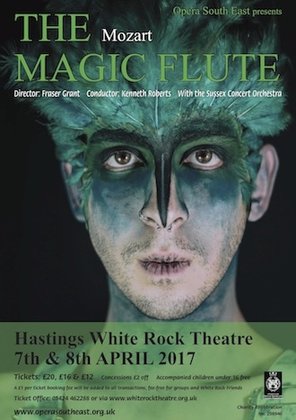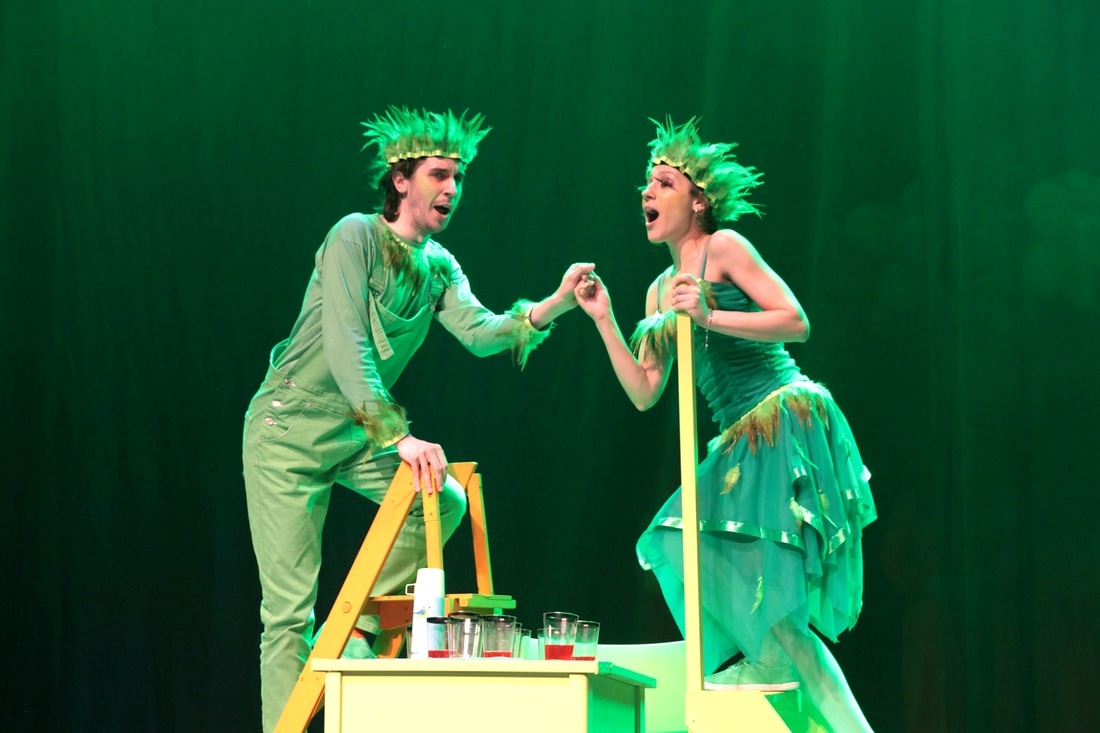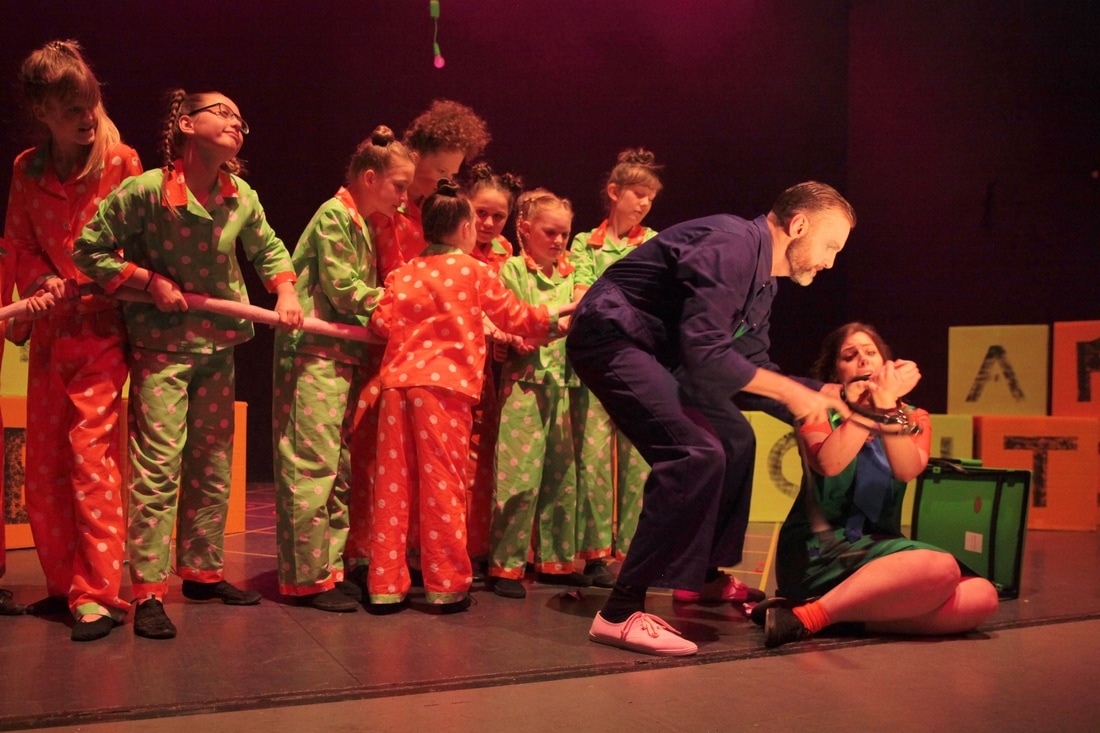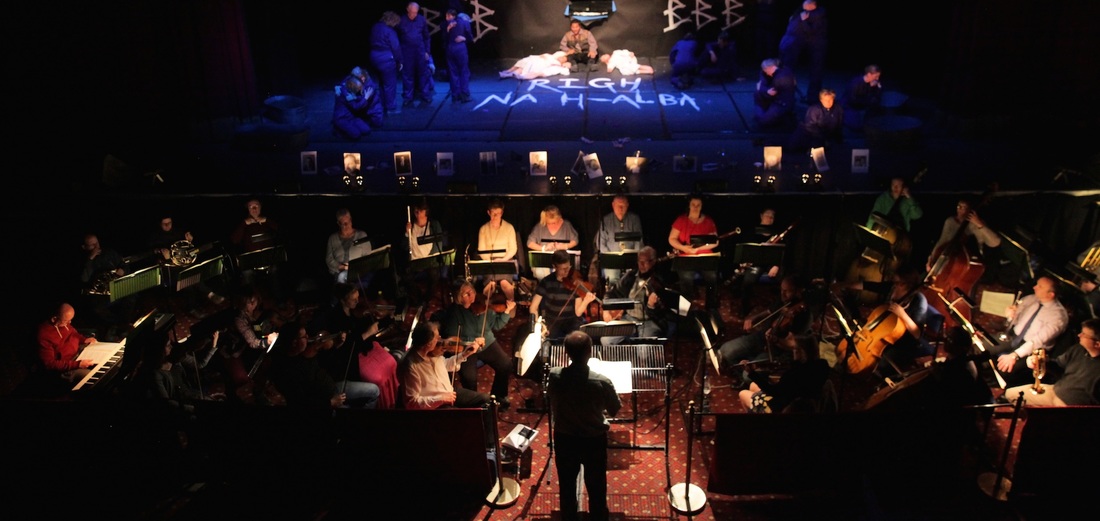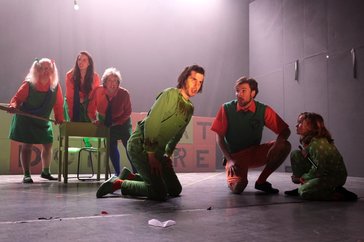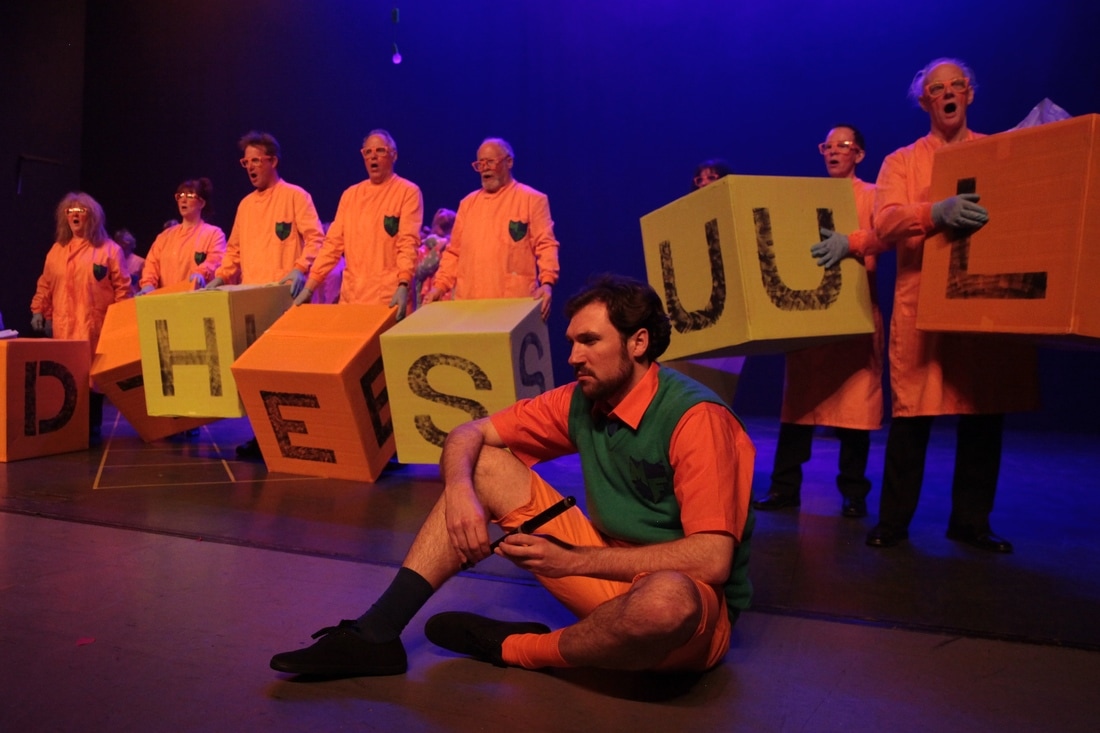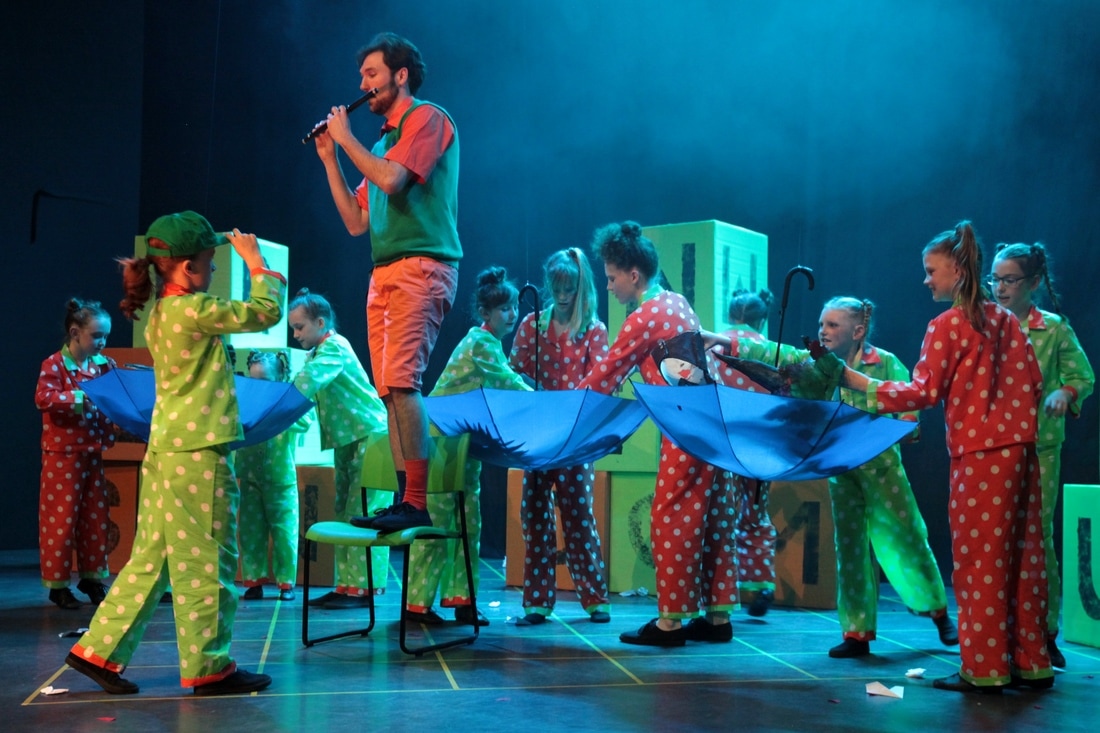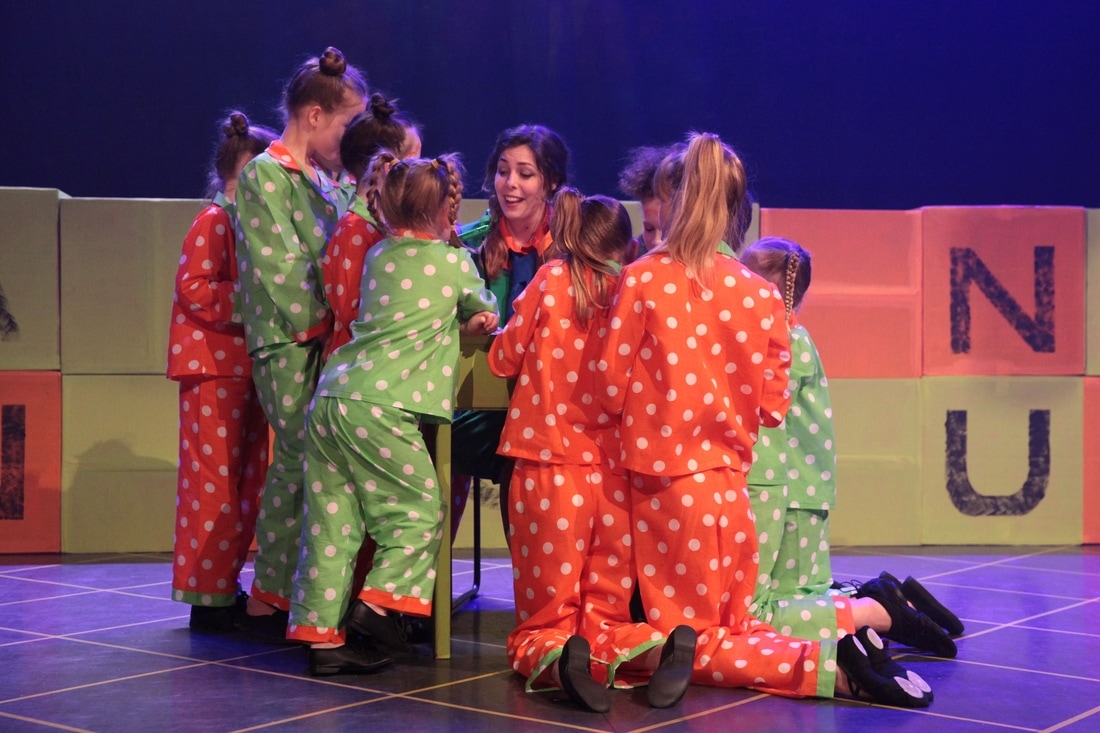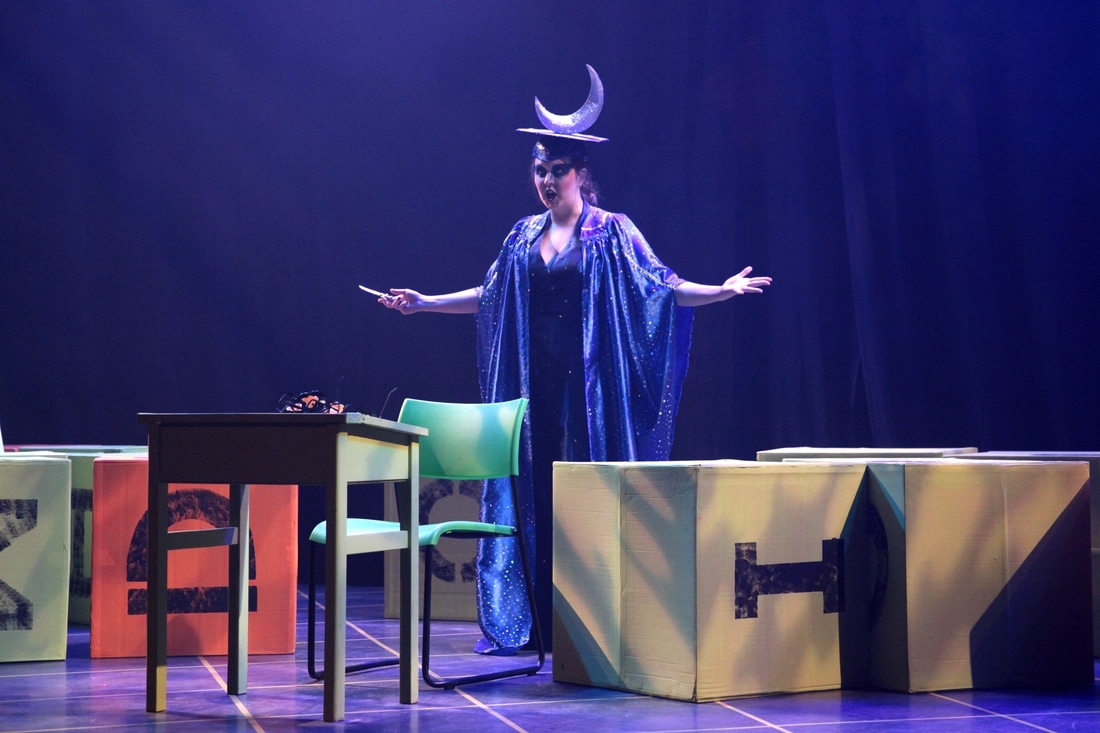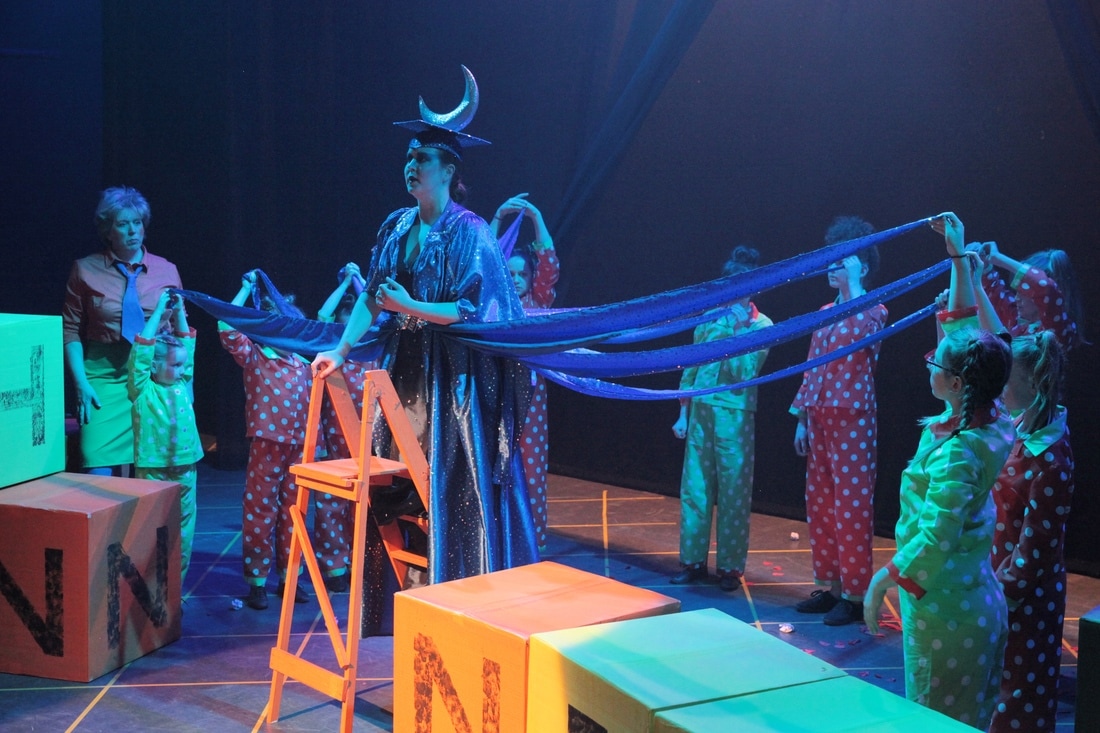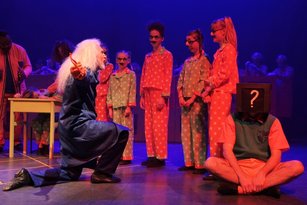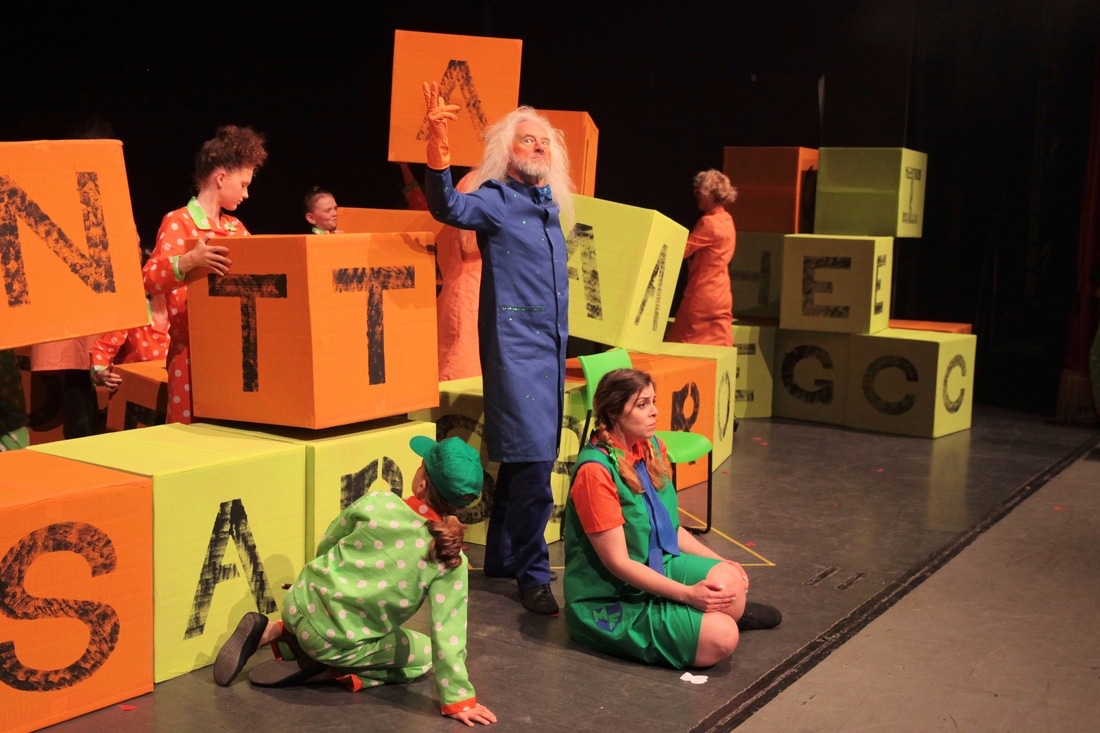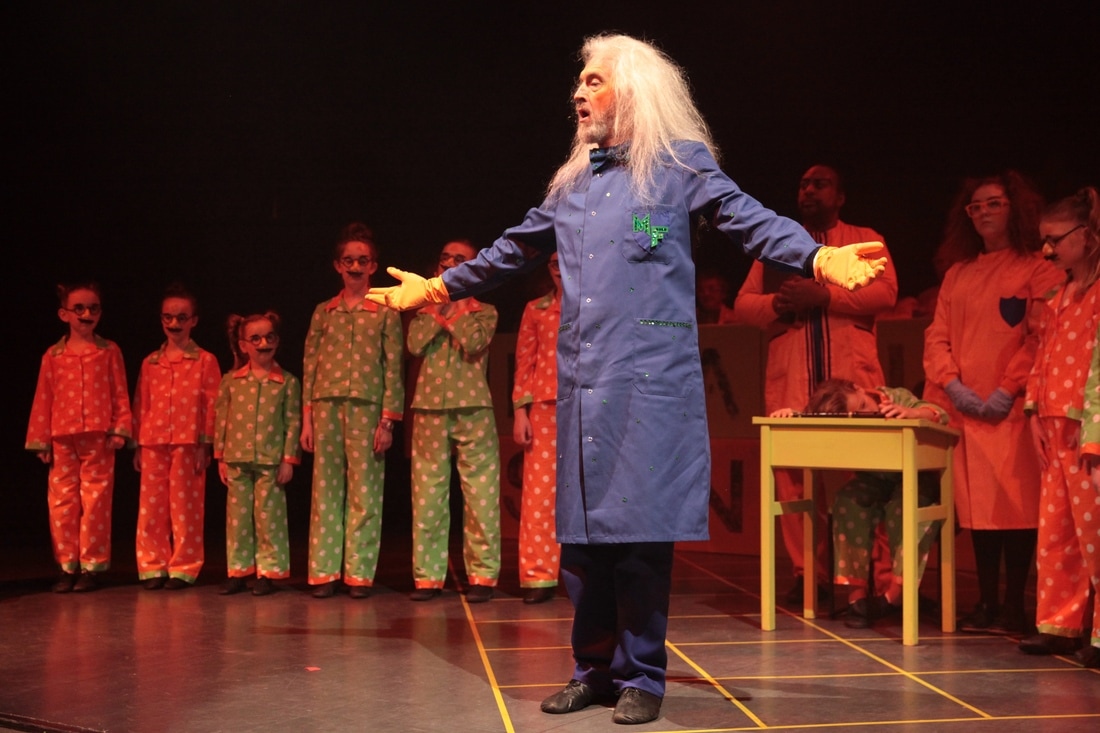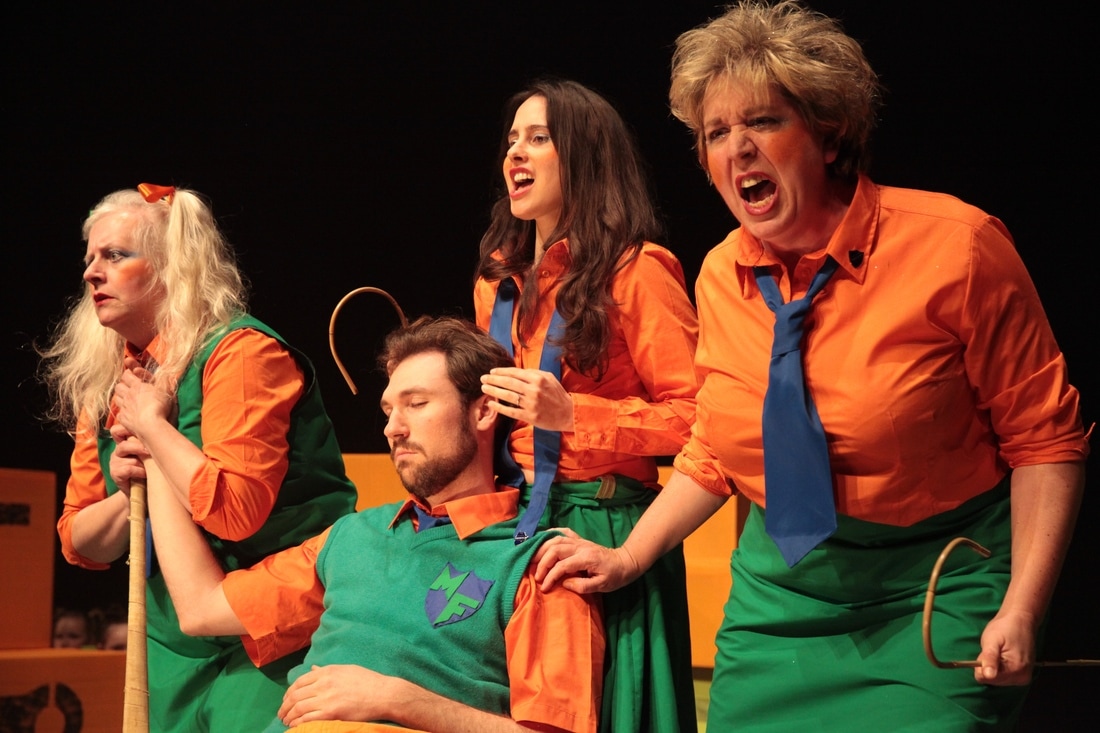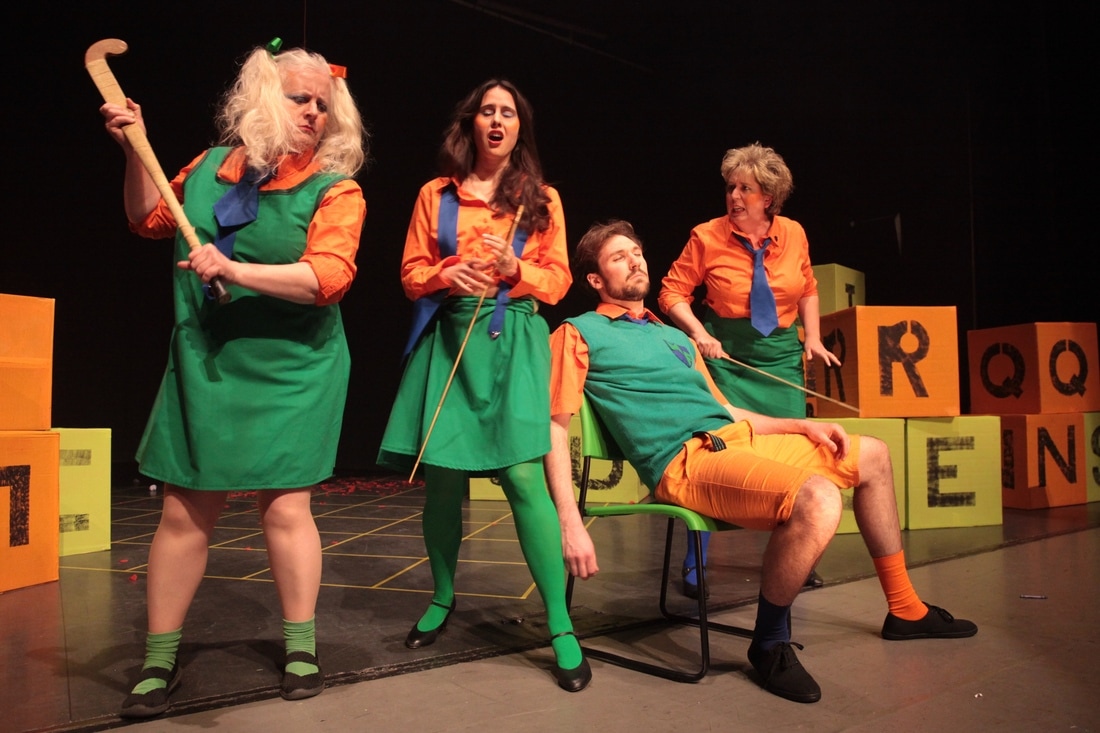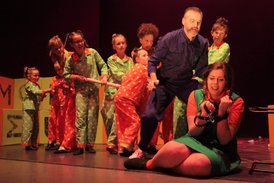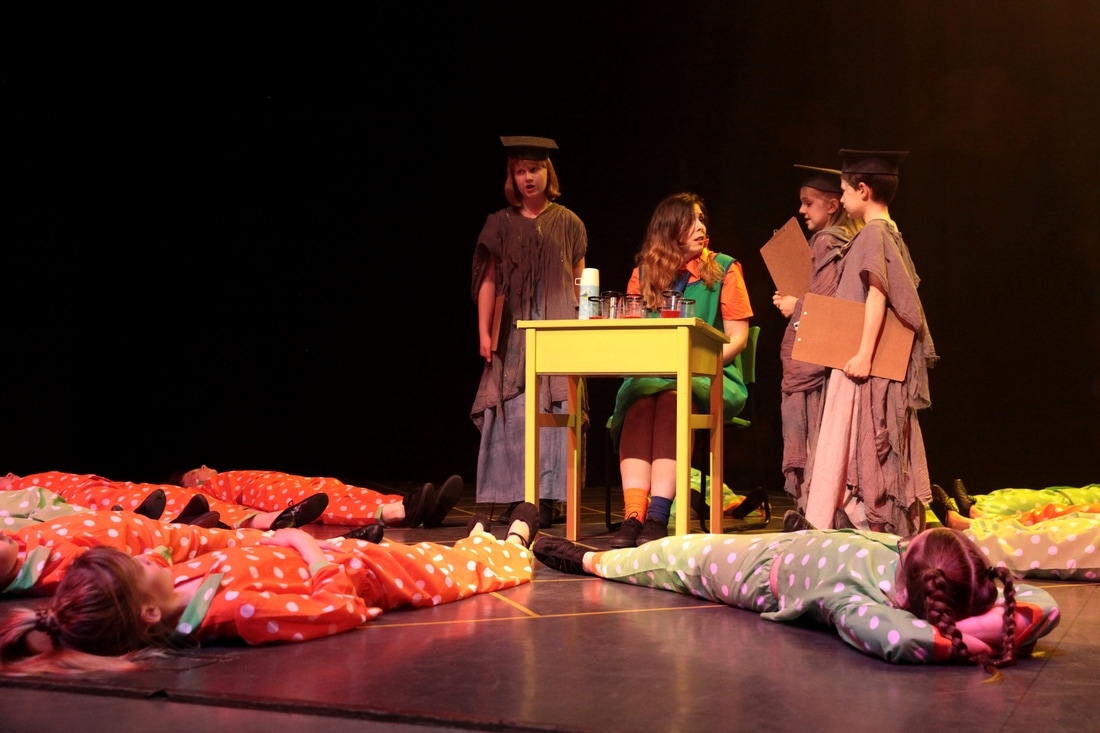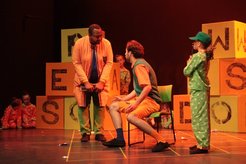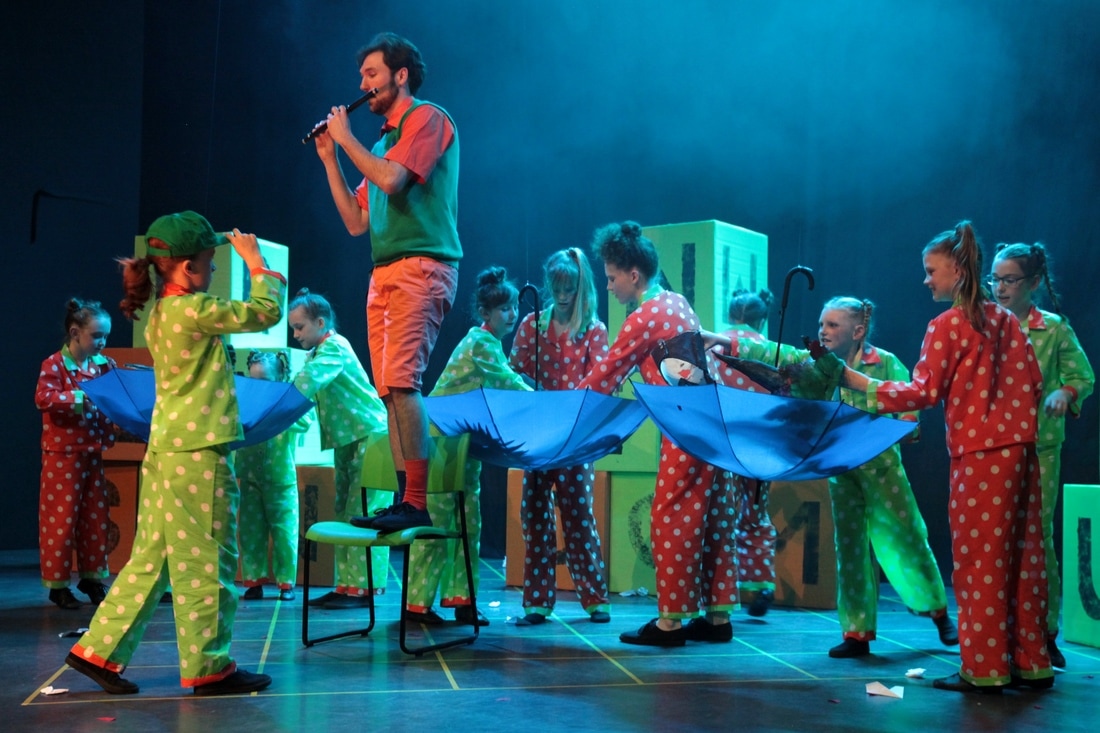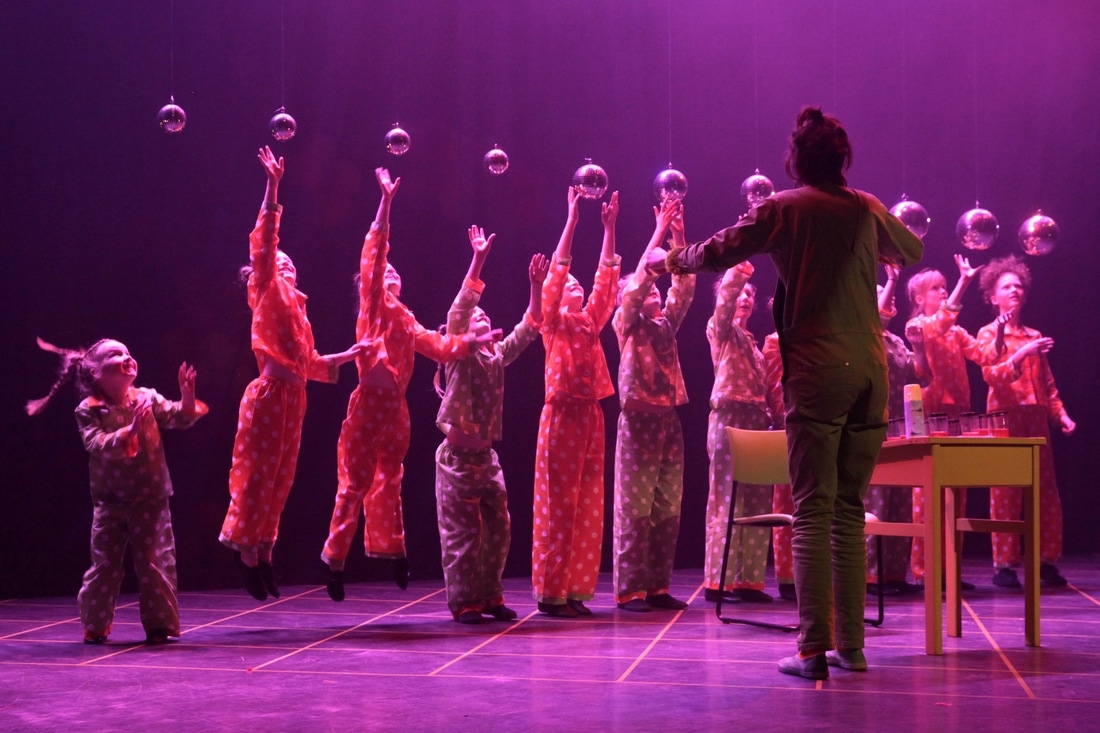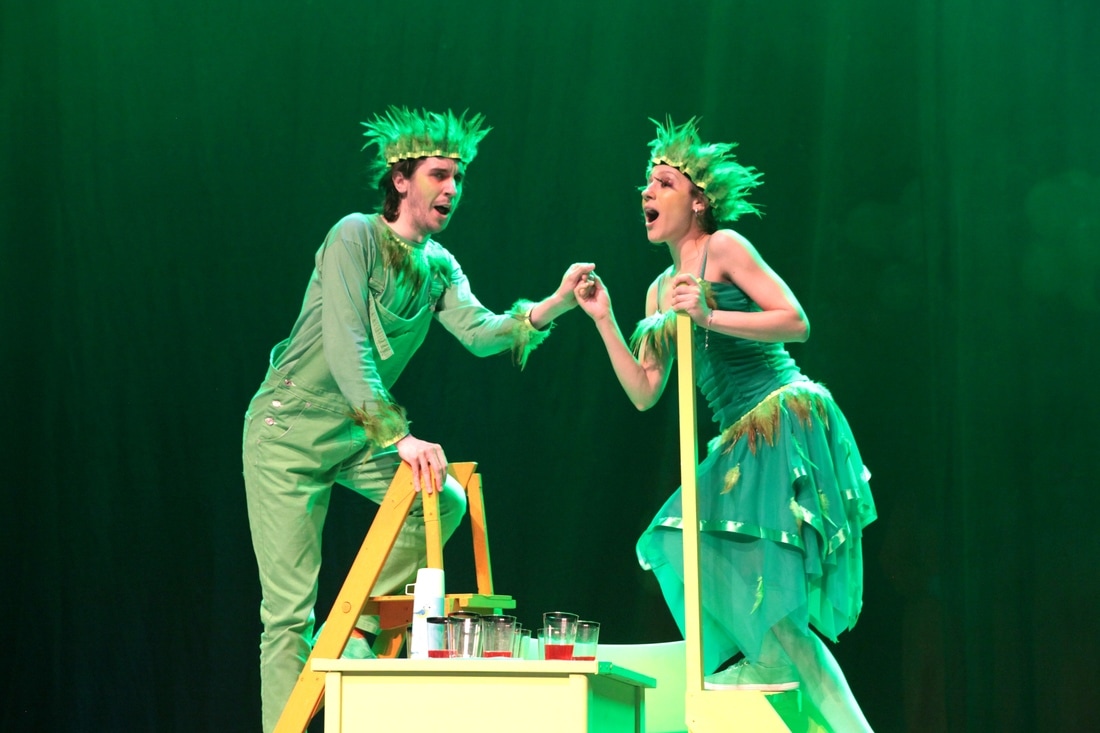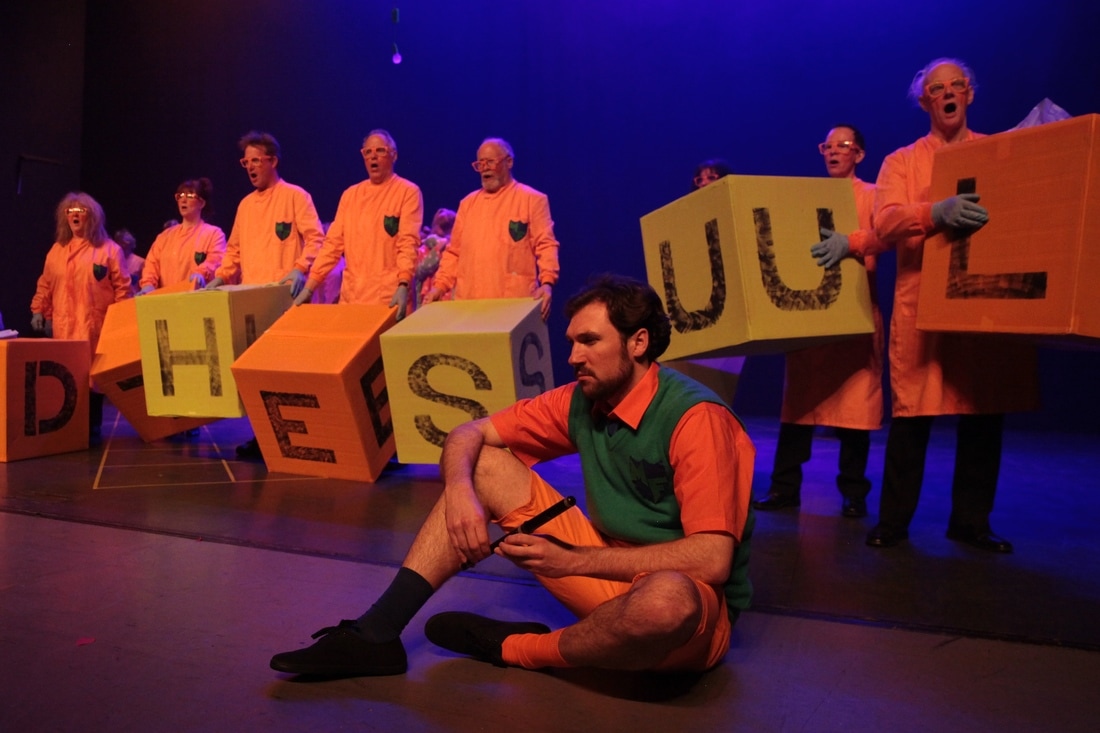Friday April 7th and Saturday 8th, 2017
Opera South East presents...
The Magic Flute – by W A Mozart
Sung in English with Chorus and Orchestra
Opera South East will be performing Mozart's The Magic Flute with the Sussex Concert Orchestra
at Hastings White Rock Theatre on Friday April 7th and Saturday 8th, 2017 at 7.30pm
|
Director: Fraser Grant
Conductor: Kenneth Roberts Mozart’s humanist masterpiece is more popular than ever. It is filled with Freemason symbols and references, and aims to show us the majestic power of art and music, a force that can change people and tame beasts.
All the magic and wonder in this production has been created by a chorus of children, in collaboration with the director and design team. Join us in our wonderful adventure as we explore this timeless masterpiece through the eyes of a child. Don’t miss it. Tickets from the White Rock Theatre at £20, £16 and £12 plus a £1 per ticket booking fee (unless groups of 8 or more, or White Rock Friend). Concessions £2 off. Children under 16 are free when accompanied by an adult. For ticket holders on either night, there will also be a pre-show talk by the Artistic Director on the Saturday evening at 6pm. This talk by the Director on the Saturday evening has proved a popular event in recent years and will give you an insight into how and why this particular production is presented in the way it is. |
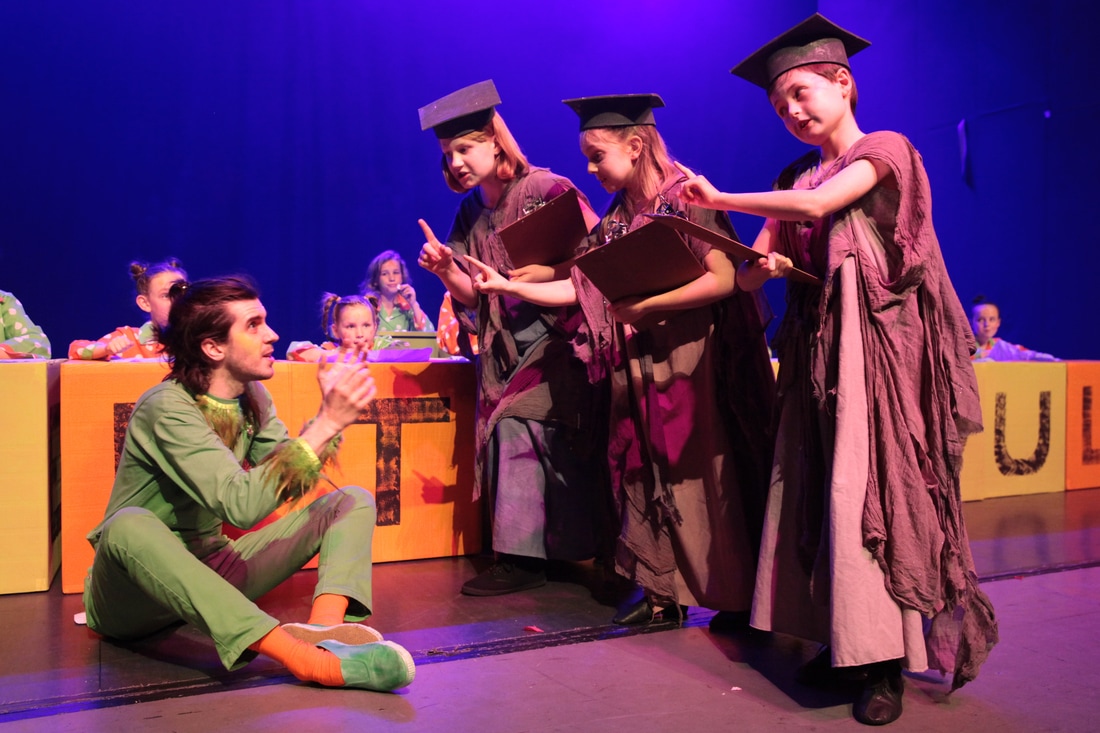
This production takes on an international flavour, strongly fortified by a local chorus. Making their Opera South East debut are South African Fae Evelyn (The Queen of the Night) American Mark Bonney (Tamino), James Williams (Papageno) and Marina Ivanova (Papagena). Local professionals joining the production include Lucy Ashton (Pamina), Toby Sims (Sarastro) and Jeremy Vinogradov (Monostatos). Also included in the cast are Julia Bovee as First Lady, Philippa Thomas as Second Lady and Karen McInally as Third Lady. The Three Genii are sung by pupils of Claremont Preparatory School.
We are delighted that many young students from Theatre Sense, a Hastings based theatre school and Claremont Preparatory School are joining the cast for this production. All the magic and wonder of this production has been created by the children, in collaboration with the director and design team. The children are at its core, they propel the story forward and introduce us to the magical characters within the opera. It is the perfect introduction to opera, especially for children, so do join us on our wonderful adventure as we explore this timeless masterpiece through the eyes of a child. Don’t miss it. The CastIn order of appearance:
Pre-show talk on Saturday 8th April 2017Fraser Grant, the Artistic Director, will be presenting a pre-show talk before the Saturday evening’s performance. This will be given in the auditorium of the White Rock Theatre at 6pm, and is free of charge to all ticket holders from either night's performance. This has proved a popular event in recent years and will give you an insight into how and why this particular production is presented in the way it is!
Biographies
Fraser Grant
Artistic Director Fraser studied French at Edinburgh University and trained as a director at Drama Studio London. After five years as artistic director of the Drayton Court Theatre Company, he went on to become head of Music Theatre at The London College of Music and Media as well as Head of Drama at the Junior College. He is now Head of Drama at Harvington Prep School in Ealing coupling this with a continuing career in professional Opera and Music Theatre directing. Fraser has Directed 18 prior operas for Opera South East, as well as many for Oyster Opera, LCMM, Unicorn Theatre, and has been Theatre Director for productions of many plays in the UK and Italy. Amongst his works he has won several awards for Best Production on the Edinburgh Fringe. He also works as a lyricist and translator, frequently collaborating with the cabaret duo Opera Tottie. A fuller biography of Fraser can be found here... |
Audience CommentsAudience reaction of OSE's production of Verdi's Macbeth (April 2016) :-
Booking informationTicket prices:
The White Rock Theatre Box Office is open now!
The Company - The Magic Flute 2017The Sussex Concert Orchestra
Director Fraser Grant Conductor Kenneth Roberts Assistant Musical Director Nigel Howard Stage Manager for White Rock Theatre Adam Harkin Stage Manager for Opera South East Kit Calcott-James Assistant Stage Manager Amelia Calcott-James Deputy Stage Manager Amy Schiwitz Set Construction Karen McInally Lighting Design Fraser Grant Lighting Technician Clifton Hollister Costume Design Julia Bovee Properties Clare Calcott-James, assisted by Amelia Calcott-James Make up and Hair, under the direction of Juliette Vane Production Secretary Greg Solomon Programme John Rycroft Artwork Julia Bovee Programme Consultant Simon Page Printed by Impact Design & Print Make a weekend of it in Hastings?There's lots of hotel choice in the area, e.g.
|
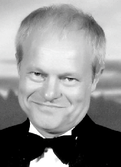
Kenneth Roberts
Conductor/Musical Director
Kenneth Roberts was born in Hastings and educated at York University where he gained BA and MA degrees in music. He works as Musical Director for numerous companies at home and abroad and has conducted over 250 opera, ballet and other theatrical productions. He has played and conducted at many prestigious venues including The Royal Albert Hall, The Festival Hall, The Britten Theatre, Kensington Palace and Hampton Court. His second opera, Mister Butterfly, which he wrote in 1994 was premiered in Hong Kong and subsequently performed at the Edinburgh Festival, and featured in a documentary shown by BBC television and BBC World Service Satellite. Between 2001-2011 he worked at the University of New Hampshire, USA, where he directed a new African Musical which he was commissioned to write and also composed music for an award-winning ‘international’ children’s piece. He was also musical director and conductor for Plymouth State University’s Educational Theatre Collaborative. In 2002 he fulfilled a commission from the Purcell School in association with the Vaughan-Williams Trust as part of their centenary celebrations to mark the birth of Sir William Walton and in 2005 he completed a commission to write a ballet based on the novel The Trumpet Major by Thomas Hardy. In 2010 he also contributed music for the recently published musical version of 'Pollyanna' and also became a BIFF (British and International Federation of Festivals) adjudicator.
His highly acclaimed reduced orchestral arrangements of operatic scores by Mozart, Rossini, Verdi, Puccini and others are currently being played all over the world and are available from www.smallscores.com
In between times he has enjoyed giving his series of lecture recitals around the country at music clubs, and on cruise liners on subjects ranging from Mozart to ‘Jelly Roll’ Morton and has just released a CD of piano music entitled ‘Around the World in 80 Minutes’.
A fuller biography of Ken can be found here...
Conductor/Musical Director
Kenneth Roberts was born in Hastings and educated at York University where he gained BA and MA degrees in music. He works as Musical Director for numerous companies at home and abroad and has conducted over 250 opera, ballet and other theatrical productions. He has played and conducted at many prestigious venues including The Royal Albert Hall, The Festival Hall, The Britten Theatre, Kensington Palace and Hampton Court. His second opera, Mister Butterfly, which he wrote in 1994 was premiered in Hong Kong and subsequently performed at the Edinburgh Festival, and featured in a documentary shown by BBC television and BBC World Service Satellite. Between 2001-2011 he worked at the University of New Hampshire, USA, where he directed a new African Musical which he was commissioned to write and also composed music for an award-winning ‘international’ children’s piece. He was also musical director and conductor for Plymouth State University’s Educational Theatre Collaborative. In 2002 he fulfilled a commission from the Purcell School in association with the Vaughan-Williams Trust as part of their centenary celebrations to mark the birth of Sir William Walton and in 2005 he completed a commission to write a ballet based on the novel The Trumpet Major by Thomas Hardy. In 2010 he also contributed music for the recently published musical version of 'Pollyanna' and also became a BIFF (British and International Federation of Festivals) adjudicator.
His highly acclaimed reduced orchestral arrangements of operatic scores by Mozart, Rossini, Verdi, Puccini and others are currently being played all over the world and are available from www.smallscores.com
In between times he has enjoyed giving his series of lecture recitals around the country at music clubs, and on cruise liners on subjects ranging from Mozart to ‘Jelly Roll’ Morton and has just released a CD of piano music entitled ‘Around the World in 80 Minutes’.
A fuller biography of Ken can be found here...
The Sussex Concert Orchestra will feature a 21 piece band for this production of The Magic Flute
Principal Role Biographies
Previous roles include: Schaunard/La Bohème (Focus Opera and Lambeth Orchestra), Figaro/Il barbiere di Siviglia (East London Opera), Falke/Die Fledermaus and Aeneas/Dido and Aeneas. In 2015, James was selected for the Georg Solti Accademia, where he received coaching from Richard Bonynge on the study of bel canto arias.
In oratorio, James has performed as baritone soloist in Bach's Weihnachtsoratorium, Brahms's Ein deutsches Requiem, Finzi's Et in terra pax, Handel's Messiah, Haydn's The Creation, Mozart's Requiem, and Jonathan Rathbone's Christmas Truce. Song cycles include Die schöne Müllerin, Dichterliebe, Five Mystical Songs, and Songs of Travel. He was awarded the Charles Dibdin Prize at the 2014 John Kerr Award for English Song and First Prize at the Elisabeth Schumann Lieder Competition
In oratorio, James has performed as baritone soloist in Bach's Weihnachtsoratorium, Brahms's Ein deutsches Requiem, Finzi's Et in terra pax, Handel's Messiah, Haydn's The Creation, Mozart's Requiem, and Jonathan Rathbone's Christmas Truce. Song cycles include Die schöne Müllerin, Dichterliebe, Five Mystical Songs, and Songs of Travel. He was awarded the Charles Dibdin Prize at the 2014 John Kerr Award for English Song and First Prize at the Elisabeth Schumann Lieder Competition

Lucy Ashton
Pamina, object of the noblest and basest of desires - daughter of the Queen of the Night and the Head Girl Lucy graduated from the Royal College of music last summer having studied both the Bachelor of Music and Master of Perfomance Studies qualifications there. Performance roles included Zerlina in Don Giovanni, Fiordiligi in Cosi fan tutee, Susanna in Le nozze di Figaro. Separately a number of soloist concert and oratorio roles have been performed every year since 2013. Living in Battle and am saving funds in order to study further at opera school whilst continuing as Choir mistress of Crowhurst Community choral group and privately teaching singing and piano. Forthcoming Engagements include roles of Belinda in Dido and Aeneas in July in Rye, and the roles of Destino in La Calisto in August for our friends Barefoot Opera. A fuller biography of Lucy can be found here... |

Fae Evelyn
Queen of the Night (mother) - The Headmistress
Fae is a South African Soprano. In 2008 she graduated with a BMus (summa cum laude) from the University of Kwa-Zulu Natal. She moved to England in 2009 to undertake an MMus in Solo Performance at the Royal Northern College of Music, under the tuteladge of Sandra Dugdale, which she completed with Distinction.
During her two years in Manchester, Fae performed Geraldine in Barber’s A Hand of Bridge, Valencienne in Lehar’s The Merry Widow, and Second Woman in Purcell’s Dido and Aeneas. In opera excerpts at the RNCM she played Helena in Paride ed Helena and Iphigenie in Iphigenie en Tauride by Gluck, and Äanchen in Der Freischütz by Weber. She was also a chorus member for productions of Handel’s Belshazzar, Mozart’s La Clemenza Di Tito, and Bizet’s Carmen.
In 2012, Fae moved to London. Highlights of the last two years include playing the title role in Susannah by Floyd, and Rosalinde in Strauss’ Die Fledermaus, in the Spring Opera Programme Showcase highlights with Associated Studios. She was a member of the 2013 Holland Park Chorus for Puccini’s Madama Butterfly, Bizet’s Les Pêcheurs de Perles, and I gioielli della Madonna by Wolf-Ferrari and singing the role of Second Niece in Britten’s Peter Grimes with Elemental Opera. Additionally, she performed the role of Countess in Mozart’s Le Nozze Di Figaro in Associated Studio’s Showcase for the Three Month Intensive Opera Course.
Fae is currently an ENO Extra Chorus Soprano, and is working with Graeme Danby as her principal tutor. This summer, she will be performing as a member of the Grange Park Opera Chorus in Don Quichotte, Massenet, and La Traviata, Verdi.
Queen of the Night (mother) - The Headmistress
Fae is a South African Soprano. In 2008 she graduated with a BMus (summa cum laude) from the University of Kwa-Zulu Natal. She moved to England in 2009 to undertake an MMus in Solo Performance at the Royal Northern College of Music, under the tuteladge of Sandra Dugdale, which she completed with Distinction.
During her two years in Manchester, Fae performed Geraldine in Barber’s A Hand of Bridge, Valencienne in Lehar’s The Merry Widow, and Second Woman in Purcell’s Dido and Aeneas. In opera excerpts at the RNCM she played Helena in Paride ed Helena and Iphigenie in Iphigenie en Tauride by Gluck, and Äanchen in Der Freischütz by Weber. She was also a chorus member for productions of Handel’s Belshazzar, Mozart’s La Clemenza Di Tito, and Bizet’s Carmen.
In 2012, Fae moved to London. Highlights of the last two years include playing the title role in Susannah by Floyd, and Rosalinde in Strauss’ Die Fledermaus, in the Spring Opera Programme Showcase highlights with Associated Studios. She was a member of the 2013 Holland Park Chorus for Puccini’s Madama Butterfly, Bizet’s Les Pêcheurs de Perles, and I gioielli della Madonna by Wolf-Ferrari and singing the role of Second Niece in Britten’s Peter Grimes with Elemental Opera. Additionally, she performed the role of Countess in Mozart’s Le Nozze Di Figaro in Associated Studio’s Showcase for the Three Month Intensive Opera Course.
Fae is currently an ENO Extra Chorus Soprano, and is working with Graeme Danby as her principal tutor. This summer, she will be performing as a member of the Grange Park Opera Chorus in Don Quichotte, Massenet, and La Traviata, Verdi.
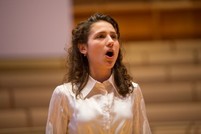
Marina Ivanova
Papagena (in love with Papageno) - the School Librarian
Bulgarian soprano, Marina Ivanova read European Economics and French at the University of Kent, Canterbury. Marina was a holder of Music and Performance scholarship, studying with Peter Cox. Marina received the University of Kent Music Prize 2012 and the Canterbury Festival Price 2014 for making an outstanding contribution to music. She now studies with Michell Harris. As a concert soloist Marina has performed at Canterbury Cathedral, Gulbenkian Theatre, Colyer-Fergusson Hall, St James's Church, London and more recently in Leichlingen, Germany. Marina made her operatic debut at Brent Opera, London as the Singer in Puccini's Manon Lescaut. Her solo repertoire includes Mozart Requiem, Haydn The Creation, Vivaldi Gloria and Nulla in Mundo Pax Sincera and Schubert Shepherd on the Rock. Marina is currently appearing as Papagena in South East Opera's production of Mozart's The Magic Flute.
Papagena (in love with Papageno) - the School Librarian
Bulgarian soprano, Marina Ivanova read European Economics and French at the University of Kent, Canterbury. Marina was a holder of Music and Performance scholarship, studying with Peter Cox. Marina received the University of Kent Music Prize 2012 and the Canterbury Festival Price 2014 for making an outstanding contribution to music. She now studies with Michell Harris. As a concert soloist Marina has performed at Canterbury Cathedral, Gulbenkian Theatre, Colyer-Fergusson Hall, St James's Church, London and more recently in Leichlingen, Germany. Marina made her operatic debut at Brent Opera, London as the Singer in Puccini's Manon Lescaut. Her solo repertoire includes Mozart Requiem, Haydn The Creation, Vivaldi Gloria and Nulla in Mundo Pax Sincera and Schubert Shepherd on the Rock. Marina is currently appearing as Papagena in South East Opera's production of Mozart's The Magic Flute.
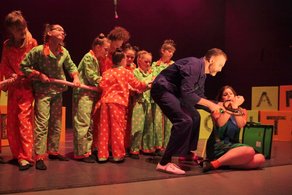
Noted for his strong stage persona, which aided a more recent into character tenor repertoire, he sang Orlofsky Fledermaus for Opera della Luna, and played his first Gilbert and Sullivan, with the Learned Judge Trial by Jury and Joseph Porter HMS Pinafore with Heritage Opera and Opera South East, and Major General Stanley Pirates of Penzance for Opera Anywhere.
He made his operatic tenor debut as Mayor Upfold in Britten's Albert Herring with Surrey Opera, and sang Offenbach’s Orpheus and Goro Madam Butterfly with Opera South East; Goro with Lambeth Orchestra; Ringmaster The Bartered Bride with Kentish Opera; Gastone Traviata with New London Opera Players; and more recently Basilio and Curzio Le nozze di Figaro with Dulwich Opera Company, Tisiphone in Rameau’s Hippolyte et Aricie with Linden Baroque Opera, and Flute A Midsummer Night’s Dream with Surrey Opera. In the Autumn he will perform Dr Blind in Fulham Opera’s Fledermaus
He made his operatic tenor debut as Mayor Upfold in Britten's Albert Herring with Surrey Opera, and sang Offenbach’s Orpheus and Goro Madam Butterfly with Opera South East; Goro with Lambeth Orchestra; Ringmaster The Bartered Bride with Kentish Opera; Gastone Traviata with New London Opera Players; and more recently Basilio and Curzio Le nozze di Figaro with Dulwich Opera Company, Tisiphone in Rameau’s Hippolyte et Aricie with Linden Baroque Opera, and Flute A Midsummer Night’s Dream with Surrey Opera. In the Autumn he will perform Dr Blind in Fulham Opera’s Fledermaus
|
Gerry Turner
Priest/Man in Armour 1 Gerald worked for many years as a translator in Prague where he sang with the Kuhn Mixed Voice Choir. He moved to Hastings in 2016 and this will be his first performance with Opera South East. |

John Rycroft
Priest/Man in Armour 2 John Rycroft moved to Hastings in the autumn of 1999. He is now Chairman of Opera South East. He has been a member for twelve years, and for a similar length of time has also been a member of the Hastings Philharmonic Choir, of which he serves on the committee. John’s interest in singing started young, winning a talent competition at the De la Warr Pavilion in the mid fifties (1950s). He started singing seriously at the age of ten and hasn’t looked back. At school he was a member of the choral society, the chapel choir and madrigal group. On leaving school, and living in London, John soon became involved with major London Choirs, becoming Chairman of the City of London Choir. This involvement with London choirs, alongside the City of London Choir, were with the Philharmonia Chorus, Goldsmiths Choral Union, London Concert Choir and Chelsea Opera Group and continued for almost thirty years until he moved to Hastings. |
The Magic Flute - Synopsis of the plot, act by act
The synopsis of an opera is always worth reading before an opera performance, so do buy a programme on the night and get there in time to read it.
The programme will also contain some gaelic translations that you may find helpful to better understand the set!
The Plot
ACT I
A mythical land between the sun and the moon. Three ladies in the service of the Queen of the Night save Prince Tamino from a serpent. When they leave to tell the queen, the bird-catcher, Papageno appears. He boasts to Tamino that it was he who killed the creature. The ladies return to give Tamino a portrait of the queen’s daughter, Pamina, who they say has been enslaved by the evil Sarastro. Tamino immediately falls in love with the girl’s picture. The queen, appearing in a burst of thunder, tells Tamino about the loss of her daughter and commands him to rescue her. The ladies give a magic flute to Tamino and silver bells to Papageno to ensure their safety on the journey and appoint three spirits to guide them.
Sarastro’s minion, Monostatos, pursues Pamina but is frightened away by Papageno. The bird-catcher tells Pamina that Tamino loves her and is on his way to save her. Led by the three spirits to the temple of Sarastro, Tamino learns from a high priest that it is the Queen, not Sarastro, who is evil. Hearing that Pamina is safe, Tamino charms the wild animals with his flute, then rushes off to follow the sound of Papageno’s pipes. Monostatos and his men chase Papageno and Pamina but are left helpless when Papageno plays his magic bells. Sarastro enters in great ceremony. He punishes Monostatos and promises Pamina that he will eventually set her free. Pamina catches a glimpse of Tamino, who is led into the temple with Papageno.
The programme will also contain some gaelic translations that you may find helpful to better understand the set!
The Plot
ACT I
A mythical land between the sun and the moon. Three ladies in the service of the Queen of the Night save Prince Tamino from a serpent. When they leave to tell the queen, the bird-catcher, Papageno appears. He boasts to Tamino that it was he who killed the creature. The ladies return to give Tamino a portrait of the queen’s daughter, Pamina, who they say has been enslaved by the evil Sarastro. Tamino immediately falls in love with the girl’s picture. The queen, appearing in a burst of thunder, tells Tamino about the loss of her daughter and commands him to rescue her. The ladies give a magic flute to Tamino and silver bells to Papageno to ensure their safety on the journey and appoint three spirits to guide them.
Sarastro’s minion, Monostatos, pursues Pamina but is frightened away by Papageno. The bird-catcher tells Pamina that Tamino loves her and is on his way to save her. Led by the three spirits to the temple of Sarastro, Tamino learns from a high priest that it is the Queen, not Sarastro, who is evil. Hearing that Pamina is safe, Tamino charms the wild animals with his flute, then rushes off to follow the sound of Papageno’s pipes. Monostatos and his men chase Papageno and Pamina but are left helpless when Papageno plays his magic bells. Sarastro enters in great ceremony. He punishes Monostatos and promises Pamina that he will eventually set her free. Pamina catches a glimpse of Tamino, who is led into the temple with Papageno.
|
|
Interval of up to 25 minutes
|
|
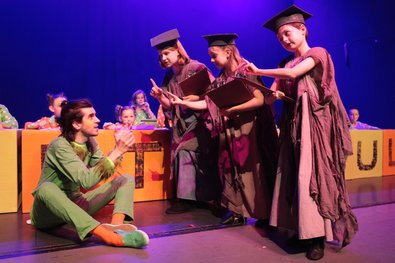
ACT II
Sarastro tells his associates that Tamino will undergo initiation rites. Left alone in darkness, Tamino and Papageno are accosted by the three ladies who want to know why they have not rescued Pamina. The ladies are chased away by thunder and lightning. Meanwhile, Monostatos tries to kiss the sleeping Pamina but is surprised by the appearance of the Queen of the Night. The Queen gives her daughter a dagger and orders her to murder Sarastro.
Sarastro finds the desperate Pamina and consoles her, explaining that he is not interested in vengeance. Tamino and Papageno are told by a priest that they must remain silent and are not allowed to eat, a vow that Papageno immediately breaks when he takes a glass of water from a flirtatious old lady. When he asks her name, the old lady vanishes. The three spirits appear to guide Tamino through the rest of his journey and to tell Papageno to be quiet. Tamino remains silent even when Pamina appears. Misunderstanding his vow for coldness, she is heartbroken.
The associates inform Tamino that he has only two more trials to complete his initiation. Papageno, who has given up on entering the brotherhood, longs for a wife instead. He eventually settles for the old lady. When he promises to be faithful she turns into a beautiful young Papagena but immediately disappears.
Pamina and Tamino are reunited and face the ordeals of water and fire together, protected by the magic flute.
Papageno tries to hang himself but is saved by the three spirits, who remind him that if he uses his magic bells he will find true happiness. When he plays the bells, Papagena appears and the two start making family plans. The Queen of the Night, her three ladies, and Monostatos attack the temple but are defeated and banished. Sarastro blesses Pamina and Tamino as all join in hailing the triumph of courage, virtue, and wisdom.
Sarastro tells his associates that Tamino will undergo initiation rites. Left alone in darkness, Tamino and Papageno are accosted by the three ladies who want to know why they have not rescued Pamina. The ladies are chased away by thunder and lightning. Meanwhile, Monostatos tries to kiss the sleeping Pamina but is surprised by the appearance of the Queen of the Night. The Queen gives her daughter a dagger and orders her to murder Sarastro.
Sarastro finds the desperate Pamina and consoles her, explaining that he is not interested in vengeance. Tamino and Papageno are told by a priest that they must remain silent and are not allowed to eat, a vow that Papageno immediately breaks when he takes a glass of water from a flirtatious old lady. When he asks her name, the old lady vanishes. The three spirits appear to guide Tamino through the rest of his journey and to tell Papageno to be quiet. Tamino remains silent even when Pamina appears. Misunderstanding his vow for coldness, she is heartbroken.
The associates inform Tamino that he has only two more trials to complete his initiation. Papageno, who has given up on entering the brotherhood, longs for a wife instead. He eventually settles for the old lady. When he promises to be faithful she turns into a beautiful young Papagena but immediately disappears.
Pamina and Tamino are reunited and face the ordeals of water and fire together, protected by the magic flute.
Papageno tries to hang himself but is saved by the three spirits, who remind him that if he uses his magic bells he will find true happiness. When he plays the bells, Papagena appears and the two start making family plans. The Queen of the Night, her three ladies, and Monostatos attack the temple but are defeated and banished. Sarastro blesses Pamina and Tamino as all join in hailing the triumph of courage, virtue, and wisdom.
Director's notes
|
It was always our intention to bring a childlike innocence to this production of The Magic Flute-we wanted a show filled with wonder and magic, whilst retaining a little of the gravitas that is inherent in the themes of courage, wisdom and virtue. We also wanted a production that would appeal to all ages, especially the younger generations, who, after all, are the opera-goers of the future. But how to bring about this youthful vigour and energy, without being patronising or condescending? The answer lay in one simple and obvious conceit: in order to view the wonders and magic of the Flute through the eyes of a child all we needed to do was enlist the help of children.
So we invited a whole gang of kids to join us on our adventure as we rehearsed, and gave them 'almost' Carte Blanche to design the show, direct it and also perform in it. At the start of each rehearsal they would meet with me and my production team to discuss the design and dramatic. challenges of the scene ahead.
And so the production took shape, and tonight, what you see on stage is our response to those requests. So join us as Prince Tamino falls asleep during detention, rescues Pamina from the mad science master Sarastro, fighting off Chinese dragons and lab rats to do so, before realising that three prefects are actually in cahoots with the evil headmistress Queen of the Night. Mozart's Magic Flute seen through the eyes of the children that were in the performance is a wonderful place to be for a few hours. |
|
Members of the audience are warmly invited to a Pre-performance Talk given by Director, Fraser Grant, on Saturday 8th April at 6pm in the auditorium at the White Rock Theatre. A valid ticket for either night will ensure admission, for which there is no charge. This talk takes the form of a short presentation, then a Question and Answer session.
|
Special thanksSpecial Thanks and acknowledgements to:
|

